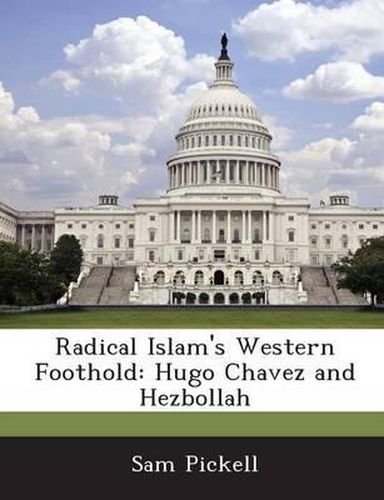Readings Newsletter
Become a Readings Member to make your shopping experience even easier.
Sign in or sign up for free!
You’re not far away from qualifying for FREE standard shipping within Australia
You’ve qualified for FREE standard shipping within Australia
The cart is loading…






Hugo Chavez’ strategy of embracing Iran in its quest to build an “anti-imperialist” and anti-American coalition of nations has undoubtedly gained strength in recent years. Beyond the close ties between Venezuela and Iran due to the two countries’ shared anti-American priorities, there are also many similarities between the basic ideologies of Chavez’ Bolivarian revolution and Iranian revolutionary thought. The Lebanese group Hezbollah shares many of Iran’s priorities and principles, and it receives a sizeable amount of financial support from the Islamic Republic…Hugo Chavez identifies with what he considers to be Hezbollah’s successful model of resistance to imperialism, and it appears he seeks to emulate elements of that success within his sphere of influence. His demonstrated support for anti-American groups like FARC and his consistent harsh rhetoric against neighboring Columbia must be viewed as an indication of his willingness to embrace other radical elements sharing a common anti-American agenda. By allowing Iranian and Hezbollah operatives ease of access to the Americas through Venezuela, Chavez runs a substantial risk to the stability of his regime. If and when Hezbollah or Iran seek to exploit their ability to function in Venezuela by pursing specific operational goals, the prob-ability of future confrontation with the United States will most certainly increase, thus inviting the only scenario in which Chavez is nearly guaranteed to lose.“
$9.00 standard shipping within Australia
FREE standard shipping within Australia for orders over $100.00
Express & International shipping calculated at checkout
Hugo Chavez’ strategy of embracing Iran in its quest to build an “anti-imperialist” and anti-American coalition of nations has undoubtedly gained strength in recent years. Beyond the close ties between Venezuela and Iran due to the two countries’ shared anti-American priorities, there are also many similarities between the basic ideologies of Chavez’ Bolivarian revolution and Iranian revolutionary thought. The Lebanese group Hezbollah shares many of Iran’s priorities and principles, and it receives a sizeable amount of financial support from the Islamic Republic…Hugo Chavez identifies with what he considers to be Hezbollah’s successful model of resistance to imperialism, and it appears he seeks to emulate elements of that success within his sphere of influence. His demonstrated support for anti-American groups like FARC and his consistent harsh rhetoric against neighboring Columbia must be viewed as an indication of his willingness to embrace other radical elements sharing a common anti-American agenda. By allowing Iranian and Hezbollah operatives ease of access to the Americas through Venezuela, Chavez runs a substantial risk to the stability of his regime. If and when Hezbollah or Iran seek to exploit their ability to function in Venezuela by pursing specific operational goals, the prob-ability of future confrontation with the United States will most certainly increase, thus inviting the only scenario in which Chavez is nearly guaranteed to lose.“